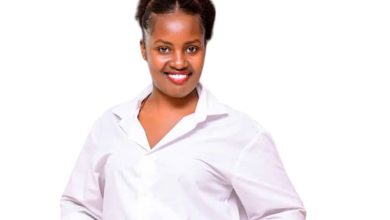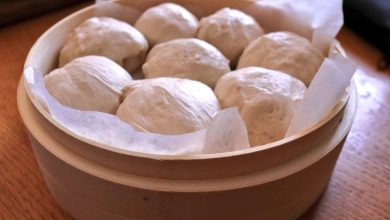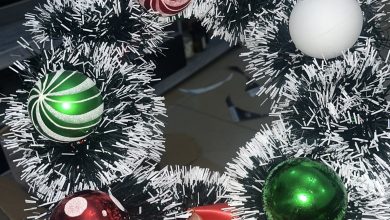
Asiimwe found sweet money in honey after losing job due to Covid-19
As the Covid-19 pandemic battered economies across the world, Uganda was not spared as many businesses crumbled and many employees lost their jobs since their employers could no longer make sales.
One of the many who lost jobs courtesy of the deadly pandemic was 27-year-old Winnie Asiimwe who joined French telecom company Africell where she worked perfectly until 2020 saw the company lay off some of its employees.
The Psychology, Guidance and Counselling graduate from Nkumba University was among the unlucky ones that the struggling company deemed excess to requirements and laid them off in a bid to cut costs.
By the time she was laid off, she had worked for the company for five years.
“My contract ended and was never renewed because the company was trying to downsize. I lived on savings all through the lockdown,” Asiimwe says.
She says she was crestfallen after losing her only source of income and livelihood and wasn’t sure how she would live.
“Days and months went by as I kept on looking for jobs but my efforts were fruitless. I kept on using my little savings for upkeep and before I realized, it was already a year without a job. I had to think outside the box,” Asiimwe narrates her story.
As the saying goes, when the going gets tough, the tough get going, Asiimwe also got tough and decided to do something to change the status quo or else she didn’t know what the future held.
Bailout
Before being laid off, Asiimwe says she was earning Shs 560,000 after taxation and that she would push herself to the limit saving between Shs 100,000 and Shs 300,000 depending on the bills she had that month.
“In all this, I didn’t allow myself to close a month without saving some money.”
The savings bailed her out at the time she needed most.
“I decided to invest my savings into the honey business. I realized almost every family uses honey on a daily basis. Many have replaced sugar with honey. I realized I could tap into this market,” she adds.
Asiimwe says she was also encouraged by the fact that one time her sister who had undergone a caesarean was prescribed to take honey to help the wound heal.
“My sister underwent a caesarean. Her wound became septic and after so many visits to the doctor, we went to a different doctor. This doctor advised that we return to hospital with organic honey. The next time we returned, this man just cleaned the wound, applied honey and said, you will be fine. Guess what, honey just did magic and this was a big cut. I was like wow! All this time, honey can actually do this?”
“I have seen my sister lose weight because of honey, from 80 Kgs to 55 Kgs in about four months by replacing sugar with honey while taking tea or milk.”
She says that when she imagined the many uses for honey, she realized there is a big market for the product and she decided to give it a try.
Business
Asiimwe says that she injected capital of about Shs 1.2 million that she used to buy honey, transport it and repackage it into small jerry cans that she sells.
She explains that whereas she is yet to trade under her name, she has secured a company name.
“I am just looking at trading under a company. I have gotten a company name but you know when you are just starting, you have to go slowly and cautiously. I don’t even have a logo or anything written on them. I want to start up a company but I am not yet there because I started with very little savings and I consider this a baby growing up,” she says.
She explains that she does deliveries for customers.
Asiimwe says that besides the local market, one of her biggest buyers is in Dubai, United Arab Emirates.
The customer buys the honey and resells it to other people in Dubai at a profit, adding that her product is preferred because it is organic with no additives.
“The business has its good weeks and months, then the low ones,” Asiimwe says.
Asiimwe says there are seasons when the quality of honey is good and other seasons when it is poor which affects her business.
“Sometimes it is the hot season and so it affects the quality of flowers, plants produce low nectar and this ends up affecting the quality of honey produced.”
She however says she ensures to keep the quality of her product so as not to lose the customers she has.
Asiimwe says she regularly interacts with her customers and that when the quality is poor from the supplier, she doesn’t take the product and in return explains the same to her clients.
“When the quality is down, I tell my supplier to at least wait and supply when the quality is good. I also explain this state of affairs for customers whom I ask to wait for the better quality and in most cases, they understand,” she says.
She says that whereas she doesn’t make a lot of profit, she is better off than being unemployed.
Advice
Asiimwe says whereas the business is not so profitable, it is better than nothing, especially for those who are unemployed.
She says that one can get a second source of income beside selling honey, just like she has a perfume selling business.
“I would advise someone to join this business because it brings in some money. You get your money back with a little profit. However, it also depends on what someone is looking out for. It’s good to have another thing that is running because it’s hard to gain much from selling honey. If you want huge profits, honey won’t give you that. That’s why you see other people trying to add other things because they are trying to make huge profit from it but honestly, it doesn’t have that much profit. Have another source of income,” she advises.
She also says that with honey, quality can’t be compromised.
Asiimwe advises young people never to relax into comfortable life.
“We shouldn’t get very comfortable with what we have because we don’t know what tomorrow holds. Who knew we were going to be in a lockdown, like the entire world? We all had something to learn from the lockdown. People didn’t have savings. You need something that will give you extra money. That could help sort other matters,” Asiimwe advises.
She adds: “I think we should have a discipline of saving and investment. From the savings, you can choose to invest. You can do something that doesn’t affect your time at work.”



